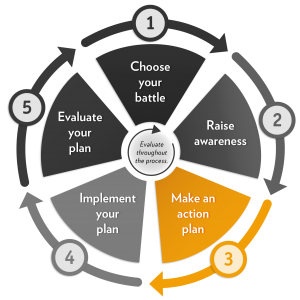
Making an action plan is such an important step to clearly lay out action steps, involvement, resources, and goals of the project. During the pre-planning, choose your battle, and raise awareness sections, youth should have added several pieces to their action plan already. Now is the time to create a full plan for the project. This full plan will help guide the process in a step-by-step way the youth have identified. It will help them make sure they have the resources and partners they need to complete the project. And it will help them know—at the end—if they have been successful in addressing the issue.
Watch the video below for a short overview of Make an Acton Plan.
In the Guidebook, facilitators will find the following:
- A list of the crucial questions youth will need answers to before they are finished making their action plan
- Tools and activities to help youth understand S.M.A.R.T. goals and develop their own
- Detailed descriptions, samples, case studies, and activities with which youth can practice using and creating their own action plan.
- Action planning strategies for both linear and non-linear thinkers
- And an evaluation checkpoint, which allows youth to be sure they are ready to move on and reminds them to reflect and celebrate their accomplishments
Supplemental Resources
The supplemental resources below support the downloadable Guidebook and are not intended to be used alone.
Handouts
Action Plan
- Action Plan Template (Word Document) — A blank template of an action plan you should download and fill in through the project planning processes.
- Sample YACH Action Plan — An example action plan from a past YACH project that youth can use to guide their own planning.
Logic Model
- Logic Model Concepts — A document explaining the concepts and steps of logic model development, using examples from a community garden project. The document includes a graphic outlining the steps of logic models.
- Example Logic Model — An example of a completed logic model, using the community garden project from the Logic Model Concepts document above.
Logic Model Activities
- YACH Case Study Logic Model—Practice creating a logic model using case studies of youth-led projects.
- Youth-Led Project Logic Model—Youth create their own logic model for their project.
- YACH Logic Model Template (Fillable PDF) — A blank template of a logic model.
Youth Self-Assessment Handout—Make Your Action Plan
Don’t forget to reflect and evaluate before you move on.
Case Study Cards
Case Study Cards
Use these Case Study Cards for Guidebook Activity: Explore Action Planning with Case Studies (page 49).
Videos
![]() Olympics 2012: Michael Phelps has mastered the Psychology of Speed
Olympics 2012: Michael Phelps has mastered the Psychology of Speed
Guidebook Activity: Warm Up Activity Visualizing a Plan (page 51)
Michael Phelps, Olympic gold medalist, has mastered visualization as a strategy to see in his mind every action he will use to accomplish his goals. Show the youth this short video to demonstrate how visualization works. Then, lead a short discussion about how visualization might be similar to a very short action plan.


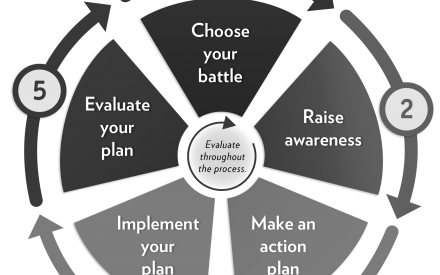 Pre-Planning
Pre-Planning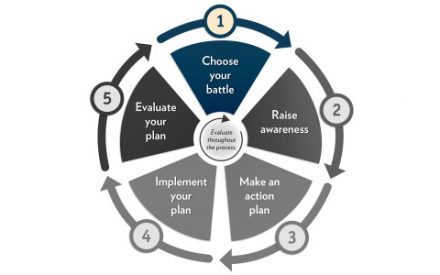 Choose Your Battle
Choose Your Battle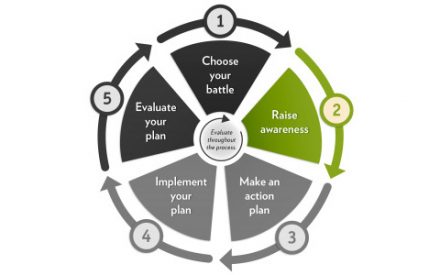 Raise Awareness
Raise Awareness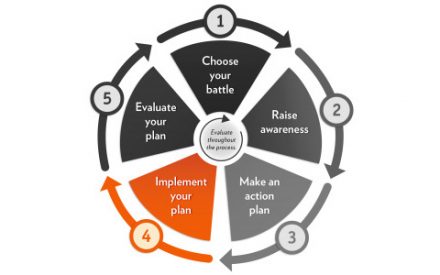 Implement Your Plan
Implement Your Plan


